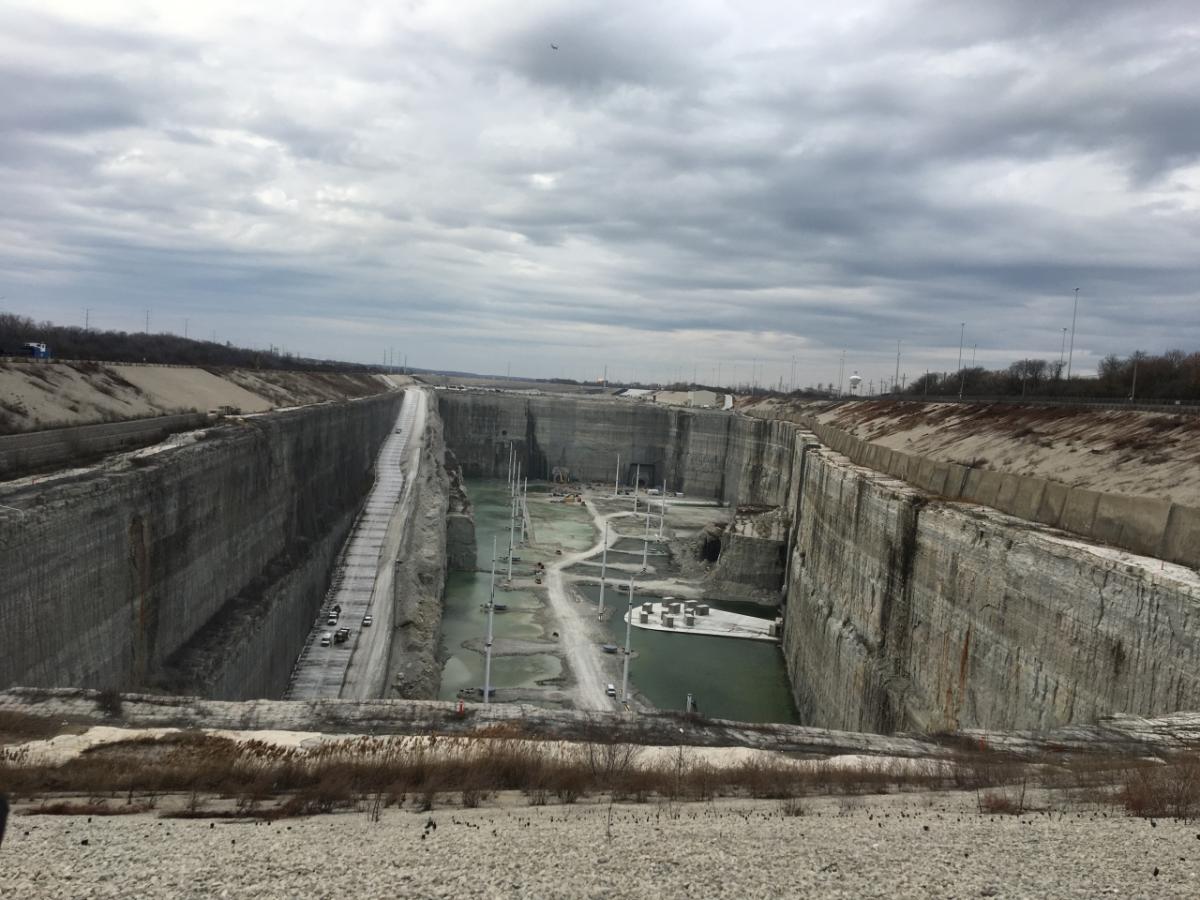Chicago Area Reservoir to Save Estimated $114 Million in Flood and Pollution Reduction
Black & Veatch Designed-McCook Reservoir to Greatly Boost Flood Storage Capacity

OVERLAND PARK, Kan., December 15, 2017 /3BL Media/ - The Metropolitan Water Reclamation District of Greater Chicago (MWRD) and U.S. Army Corps of Engineers last week celebrated the completion of the first phase of the McCook Reservoir project, a key component of MWRD’s plan to reduce flood damage and sewer overflow pollution in the Chicago area. Black & Veatch has provided planning, design, engineering and construction support on various aspects of MWRD’s Tunnel and Reservoir Plan (TARP) since 2001, including design and construction services for the McCook Main Tunnel System (MTS) that connects TARP’s Mainstream Tunnel to the McCook Reservoir.
McCook Reservoir Stage I provides an additional 3.5 billion gallons of storage capacity to capture flood water and combined sewer overflows (CSOs) and is estimated to provide $114 million annually in flood damage and CSO pollution reduction benefits. TARP reduces flooding by storing CSOs, which during wet weather events would otherwise flow into and pollute Lake Michigan and the region’s waterways, until they are able to be treated. As a result, regional water quality is also enhanced.
“The McCook Reservoir will alleviate flooding impacts for millions of residents in the region,” said Mariyana Spyropoulos, President of the Metropolitan Water Reclamation District Board of Commissioners. “We are excited to celebrate the completion of the first phase, and look forward to continuing to bolster our flood mitigation efforts that support the local community with our project partners.”
With McCook Stage I on line, the TARP system now has a flood storage capacity of more than 14 billion gallons.
“The McCook Reservoir is one of the final components of TARP, one of the largest public works projects for pollution and flood control,” said Faruk Oksuz, Black & Veatch Vice President and project director in the company’s water business. “It is the result of tremendous collaboration in support of an overarching goal to protect the environment. Including the McCook Reservoir and MTS, this project has helped restore the charm and quality of Chicago’s rivers and fostered greater connectivity to water resources for millions of people.”
“From planning to construction, state-of-the-art practices such as deep rock grouting and one-of-a-kind high pressure roller gates for tunnels were applied throughout the project,” said Greg Clum, President, Black & Veatch Federal Business. “The McCook Reservoir will protect Lake Michigan, the region’s water supply and the regional economy tied to Lake Michigan as well.”
In addition to 109 miles of deep tunnel systems and McCook Reservoir, TARP includes two other storage reservoirs – Majewski (350 million gallons) and the Thornton Composite Reservoir (7.9 billion gallons). When Stage II of McCook is fully completed in 2029, it will have a capacity of 10 billion gallons and surpass Thornton as the largest reservoir of its kind in the world.
***
Editor’s Notes:
- When McCook Reservoir Stage II is completed, the reservoir will deliver an estimated total of $143 million per year in flood reduction benefits and will bring TARP’s total capacity to more than 20.5 billion gallons of flood protection and combined sewer overflow storage.
- The MTS is a more than 1,600-foot-long, 33-foot-diameter tunnel that includes connections, gates, access shafts and energy dissipation structures.
- Black & Veatch has supported multiple components of TARP with both the MWRD and the U.S. Army Corps of Engineers, including design and construction support services for the Thornton Composite Reservoir, Thorn Creek Connection Tunnel, and the McCook Reservoir Main Tunnel and Des Plaines Inflow Tunnel, both of which connect to the McCook Reservoir.
- Black & Veatch has completed nearly 10,000 projects and more than 12,000 miles of water, wastewater and stormwater conveyance worldwide. Learn more at https://www.bv.com/markets/conveyance-storage.

